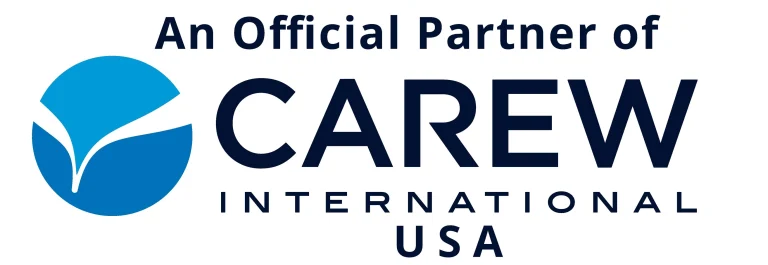Every business relies on a strong sales team to drive growth and stay competitive. But today, sales is not just about making calls or pitching a product. It’s about understanding the customer, solving real problems, and building long-term trust. That’s why having the right support and structure through corporate sales training is so important.
With so many corporate sales training programs available, choosing the right one for your team can feel overwhelming. A good training provider doesn’t just teach techniques — they help shape confident professionals who can easily handle real-world challenges.
This blog will walk you through the key things to look for when selecting a training provider, so you can invest in the right partner for long-term sales success.
Why Corporate Sales Training Matters
Sales teams often struggle with consistency, confidence, and meeting targets. The proper corporate sales training programs address these issues by offering a structured approach that sharpens communication and improves everyday selling techniques.
With practical training, employees gain the confidence to close more deals, connect better with customers, and align their work with business goals. Corporate sales training also helps teams stay updated with changing market needs, ensuring every member is prepared to contribute to long-term growth.
Step-by-Step Guide to Choosing the Right Provider
a. Understand Your Business Needs
Start by identifying the specific gaps in your current sales process. Are your sales reps struggling with lead conversion, objection handling, or closing deals? Set clear goals for what the training should improve. When you know what outcomes you want, finding a provider that offers relevant corporate sales training aligned with your objectives is easier. A focused approach ensures better results and measurable improvements across your team.
b. Check the Provider’s Experience and Background
Choose a provider with proven experience in delivering corporate sales training programs. Look into how many years they’ve been in the industry and whether they’ve worked with businesses similar to yours. Experience in both B2B and B2C sectors shows flexibility and a broader understanding. Also, check if they have worked in your industry. A provider with a solid background will understand your challenges better and offer more effective solutions.
c. Evaluate the Training Content and Delivery Format
Not all training programs are created equal. Ensure the content is practical, easy to apply, and tailored to real-world sales situations. It should match the roles of your team members and address daily challenges. Also, check how the training is delivered — in-person, online, or a hybrid format. The right delivery style ensures better participation and learning outcomes, especially if your team works from different locations.
d. Customization and Flexibility
Look for corporate sales training programs that offer flexibility to suit your business needs. The training should be aligned with your company’s values, goals, and customer approach. A one-size-fits-all model won’t work for every team. Choose providers who allow module-level customization so you can focus on the areas that matter most. This helps teams apply what they learn more effectively and makes the training relevant from day one.
e. Trainer Expertise and Real-World Sales Experience
The trainer’s background plays a key role in how impactful the sessions will be. Trainers with hands-on sales experience understand real challenges and can offer relatable insights. Avoid sessions that are too theoretical or generic. Instead, opt for trainers who can engage your team with practical examples and field-tested techniques. A good trainer teaches, motivates, and connects well with your team.
f. Post-Training Support and Assessment Tools
Effective training doesn’t stop when the session ends. Choose a provider who offers post-training support like coaching calls, Q&A sessions, or follow-up workshops. Tools that track progress, assess improvements, and provide feedback can help reinforce learning. Ongoing support ensures your team continues to apply what they’ve learned and adapts it to real work scenarios. This turns training into long-term performance improvement, not just a one-time event.
g. Client Reviews and Case Studies
Always check what other clients say. Reviews and case studies can give you an honest view of how the training worked in real situations. Focus on results in similar businesses, especially those from your industry. Success stories often highlight how a provider helped a company overcome specific challenges. This adds confidence to your decision and enables you to choose a provider who truly delivers.
How the Right Training Program Impacts Business Growth
Choosing the right corporate sales training programs can bring real results across your business:
- Faster lead conversion: Trained teams know how to handle prospects and close deals effectively.
- Higher revenue: Better sales skills directly improve your bottom line.
- Team alignment: Everyone follows a transparent, consistent approach to selling.
- Better retention: Employees feel more confident and stay longer.
- Stronger customer relationships: Skilled teams build trust and solve problems quickly.
- Reduced churn: Fewer client drop-offs and internal gaps in performance.
The right corporate sales training makes your team more efficient, confident, and ready for growth.
Conclusion: Make a Smart Investment in Your Sales Team
Choosing the right training partner shapes your sales team’s daily performance, not just during the training. It’s about investing in your sales team’s success and, by extension, your business growth. A structured and practical training program builds fundamental skills that last and brings measurable returns over time.
To explore customizable and results-oriented corporate sales training, consider working with trusted providers like B-More Consulting, who bring real-world insights and practical strategies. Their experience and focus on outcomes help businesses turn their sales teams into high-performing units ready to face real challenges.





